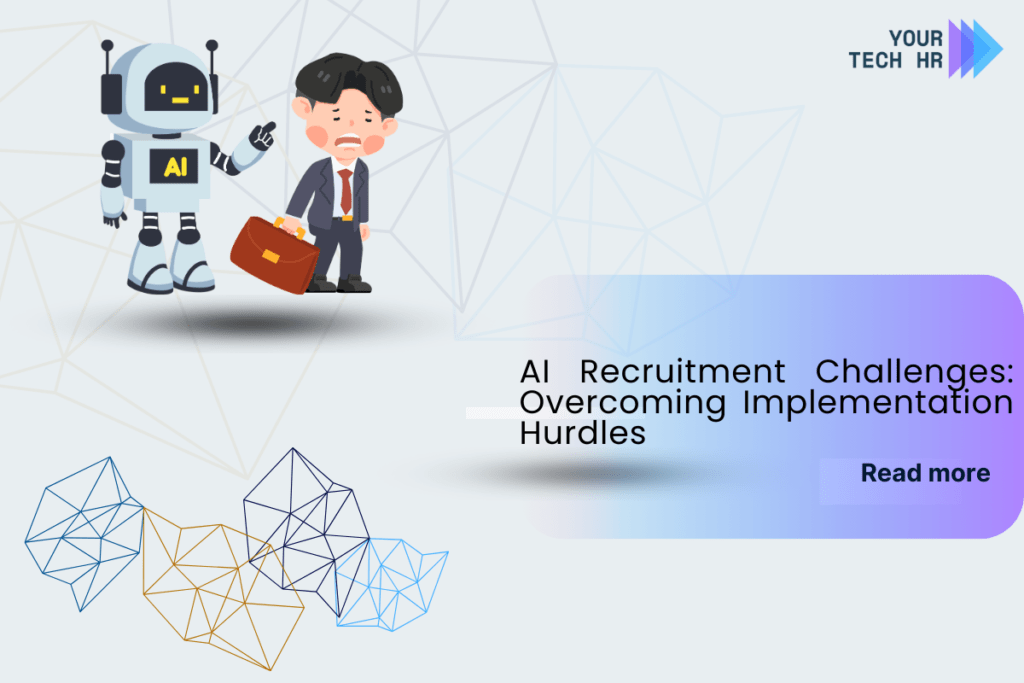In the present-day workplace dynamic, and with jobs becoming a scarce resource, many organizations have embraced AI (Artificial Intelligence) in recruitment. Automating recruitment through AI brings practical advantages, which includes increased speed, less prejudice, and a better experience for candidates. Nevertheless, the implementation of AI in recruitment has not been without some problems as discussed below. While this article focuses on the various challenges companies go through when deploying AI in recruitment, we shall also look at numerous ways of overcoming them.
Bias Mitigation: Overcoming Bias in AI Recruitment
Another major issue that can arise in recruitment is inclusiveness, in other words, AI bias. One of the key issues that arise with AI systems is based solely on historical data which may be prejudiced and therefore reinforcing existing prejudicial practices. This can be counterproductive and lead to increased discrimination when choosing candidates for a particular job. In order to address this challenge, developing bias mitigation policies should top the list of organizational agenda.
Strategies for Bias Mitigation:
Diverse Data Training: Ensure that AI algorithms are trained on diverse datasets that represent a wide range of candidates.
Regular Audits: Conduct regular audits of AI systems to identify and correct any biased patterns in the hiring process.
Human Oversight: Implement human oversight to review AI decisions, ensuring they are fair and unbiased.
Data Privacy: Managing Candidate Privacy Concerns in AI Recruitment
Another problem potentially hindering the integration of AI within the recruitment process is data protection. Since artificial intelligence uses various data sources and sometimes obtains personal and sensitive information, it is very vulnerable to hacking and misuse. With such valuable information being input and processed, it is important to safeguard it for the sake of integrity and adherence to the established data protection laws.
Strategies for Data Privacy:
Compliance with Regulations: Adhere to data privacy regulations such as GDPR or CCPA, ensuring that candidate data is handled transparently and securely.
Encryption and Security: Implement robust data encryption and security measures to protect candidate information from breaches and unauthorized access.
Transparency: Clearly communicate with candidates about how their data will be used and obtain their consent before processing it.
Skill Matching: Finding the Right Fit, Not Just the Right Keywords
The field of skill matching is a sensitive area in the recruitment process, and the use of AI can go a long way in improving this process by helping compare candidate and job data. But to achieve matching skills, one challenge that persists is the fact that skill matching involves assessment and the same is complex and subjective in this case.
Strategies for Skill Matching:
Continuous Improvement: Regularly update AI algorithms based on feedback and new data to improve their accuracy in skill matching.
Human-AI Collaboration: Combine AI assessments with human judgment to ensure comprehensive evaluation of candidate skills.
Transparent Criteria: Use transparent and well-defined criteria for skill matching to enhance the reliability of AI assessments.
Scalability: Finding the Sweet Spot
Another factor that is a challenge to the implementation of AI for recruitment is scalability. Machine learning specifically involves the usage of computations and therefore scaling such systems to increase numbers of data volume and candidates can be challenging and financially demanding.
Strategies for Scalability Constraints:
Cloud Solutions: Utilize cloud-based AI recruitment platforms to handle large-scale data and processing needs efficiently.
Modular Systems: Develop modular AI systems that can be easily scaled up or down based on recruitment demands.
Performance Monitoring: Continuously monitor the performance of AI systems to identify and address scalability issues promptly.
Dealing with Scalability Challenges in AI-Powered Talent Acquisition
Q: How can organizations deal with scalability challenges in AI-powered talent acquisition?
A: To address scalability concerns on talent acquisition using AI, the following solutions can be implemented; Cloud computing; distributed processing. These technologies meet the high demands in terms of capacity and speed to process data and match candidates at scale.
Cost of AI Recruitment Tools
Q: What is the cost associated with AI recruitment tools?
A: The cost of AI recruitment tools can range from fairly simple solutions that do not require customization to complex systems with many features. Charges such as licensing fees for using the tools, costs of implementing the tools into an organization and recurrent maintenance costs are some of the parameters that organizations should consider when deciding whether or not to adopt the use of AI recruitment tools.
Conclusion
There are many advantages of using AI in the recruitment process, but just like in any other process, it has its fair share of problems as well. When mitigated, bias, privacy issues, skill matching errors, and scalability issues become the abovementioned barriers which can hold back AI’s actual potential in the recruitment process. Due to the advancements and evolution of sophisticated machine learning, it is essential to monitor and modify the AI systems in question fairly, with high degrees of transparency, and in a legal manner. By paying attention to specific factors and approaches, organizations can implement AI-based solutions in the way they select their candidates and end up with desired results for both parties.


